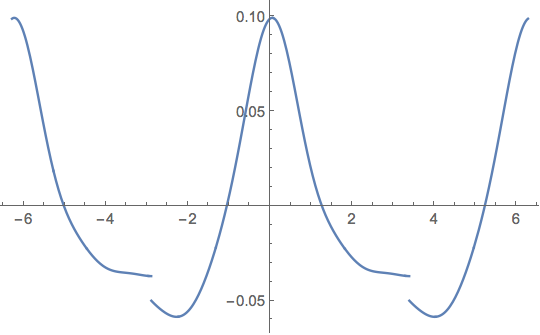I am trying to get the real part of this expression given below. Using the Re command does not lead anywhere.
1/((2.6881 - 0.686385 I) E^(I x))^(
2/3) E^(-4 I x) ((0.00256727 +
0.000818759 I) + (0.00123498 +
0.000591567 I) ((2.6881 - 0.686385 I) E^(I x))^(2/3) +
E^(I x) ((0.00382662 -
0.00012753 I) + (0.00382139 +
0.000909473 I) ((2.6881 - 0.686385 I) E^(I x))^(2/3) +
E^(I x) ((0.0108048 -
0.00264035 I) + (0.0327023 - 0.0135913 I) E^(
I x) + (0.0119219 +
0.000622502 I) ((2.6881 - 0.686385 I) E^(I x))^(
2/3) + (0.0181462 + 0.00991331 I) ((2.6881 - 0.686385 I) E^(
I x))^(5/3))))
The expression looks like this:

Can you please help me get the real part of the above expression as Polynomial of x. I tried specifying x is real too, still no luck.
Edit:
I tried using ComplexExpand as suggested in the first comment but it complicates the expression even further by introducing Arg terms.
Here is how the partial output after ComplexExpand looks like (The actual output is too long):



ComplexExpand$\endgroup$CompexExpand[Re[expr]]? $\endgroup$Re[expr]is only evaluated if expr is a numeric quantity! $\endgroup$